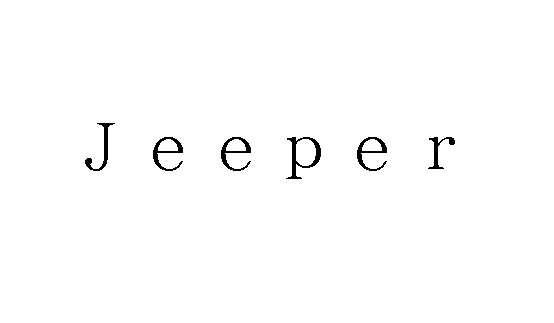In a recent invalidation decision by the Japan Patent Office (JPO), Chrysler could finally achieve victory in a trademark dispute against “Jeeper”, regardless of their failed opposition in 2022.
[Invalidation case no. 2022-890064, decided on July 5, 2023]
Disputed mark
The wordmark “Jeeper” was filed by a Japanese individual for use on various hand tools in class 8 with the JPO on January 27, 2020 (TM App no. 2020-8907).

Since the JPO admitted registration of the mark on November 17, 2020, and published it for a post-grant opposition on December 8, 2020, Fiat Chrysler Automobiles (FCA US) LLC filed an opposition on Jan 26, 2021.
In the opposition, FCA argued the mark shall be canceled in contravention of Article 4(1)(xi) and (xv) of the Trademark Law due to the remarkable reputation and popularity of “JEEP” as a source indicator of Chrysler vehicles and a high degree of similarity between the mark “Jeeper” and Chrysler “JEEP.”

Article 4(1)(xi) is a provision to refrain from registering a junior mark that is deemed identical with, or similar to, an earlier registered mark.
Article 4(1)(xv) provides that a mark shall not be registered where it is likely to cause confusion with other business entities’ well-known goods or services.
However, on April 6, 2022, the JPO Opposition Board dismissed the opposition by questioning the famousness of the “JEEP” mark among relevant consumers of hand tools and finding a low degree of similarity between the two marks (Opposition case no. 2021-900035).
Invalidation action by FCA US LLC
To contest the Opposition Board decision, FCA US LLC filed an invalidation action with the JPO on July 28, 2022, and repeatedly argued the mark “Jeeper” shall be invalid due to its similarity to and the likelihood of confusion with “JEEP” when used on the hand tools in class 8.
The applicant did neither file an answer nor respond to the invalidation claims at all.
JPO Decision
The JPO Trial Board admitted a high degree of reputation and recognition of the claimant’s trademark “JEEP” in connection with small 4WD cars. Besides, based on the facts that the JEEP mark has been used on T-shirts, backpacks, bags, mugs, lunch boxes, carabiners, key chains, spray bottles, containers, and cooler boxes, the Board found the JEEP mark has even become famous among consumers of goods other than automobiles.
Based on the above findings, the Board held that, by taking account of the famousness of the JEEP mark as a source indicator of the claimant’s small 4WD cars, the literal portion of “Jeep” shall play a prominent role in indicating the source of the disputed mark. If so, the disputed mark gives rise to the sound of “Jeep” and the meaning of “the claimant’s famous small 4WD cars” accordingly.
Bearing this in mind, the Board compared the prominent portion “Jeep” of the disputed mark with the claimant’s mark “JEEP” and found a close resemblance of both marks as a whole.
In assessing the likelihood of confusion, the Board held small 4WD cars are remotely associated with hand tools in class 8, however, the Board paid attention to the fact that camp items bearing the JEEP mark e.g., backpacks, mugs, carabiners, cooler boxes, etc., are closely associated with the goods in question.
Based on the foregoing, the Board found relevant consumers are likely to confuse a source of the goods in question bearing the disputed mark with the claimant and decided to invalidate the disputed mark based on Article 4(1)(xi) and (xv).

Masaki MIKAMI, Attorney at IP LAW – Founder of MARKS IP LAW FIRM

